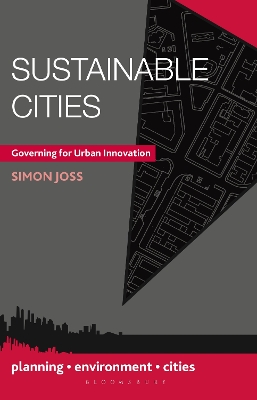Planning, Environment, Cities
1 total work
Interest in the sustainable city is growing around the world and with it come important questions about governing sustainable urban development. Why are there blockages to achieving the goal of a sustainable city? How is it possible to overcome the practical difficulties that initiatives often face? And how can an increasingly technocratic focus be rebalanced with more of a public perspective? In this wide-ranging text, Simon Joss examines mainstream policy and practice and looks at the approaches that can overcome some of their drawbacks.
The author examines the core elements of sustainable planning, and how processes of innovation, governance and policy-making work together to achieve sustainable urban change. He assesses the various challenges faced at both the domestic and international level, and across a range of urban scales. These challenges include how to resolve environmentally problematic ways of city-living at the same time as providing for urban social and economic development, and how to adapt the idea and reality of the sustainable city to different geopolitical contexts. The author recognizes that there is no 'one-size-fits-all' solution and examines the range of methods available.
In an era where entirely new eco-cities are being built and established ones being retro-fitted in response to environmental pressures, this text looks at the varying successes of the urban sustainability movement and its relationship to the planners, policy-makers and citizens who are inseparable from it. Providing an accessible account of the latest developments in research and policy as well as examples from around the world, this is indispensable reading for students, researchers and practitioners alike.
The author examines the core elements of sustainable planning, and how processes of innovation, governance and policy-making work together to achieve sustainable urban change. He assesses the various challenges faced at both the domestic and international level, and across a range of urban scales. These challenges include how to resolve environmentally problematic ways of city-living at the same time as providing for urban social and economic development, and how to adapt the idea and reality of the sustainable city to different geopolitical contexts. The author recognizes that there is no 'one-size-fits-all' solution and examines the range of methods available.
In an era where entirely new eco-cities are being built and established ones being retro-fitted in response to environmental pressures, this text looks at the varying successes of the urban sustainability movement and its relationship to the planners, policy-makers and citizens who are inseparable from it. Providing an accessible account of the latest developments in research and policy as well as examples from around the world, this is indispensable reading for students, researchers and practitioners alike.
